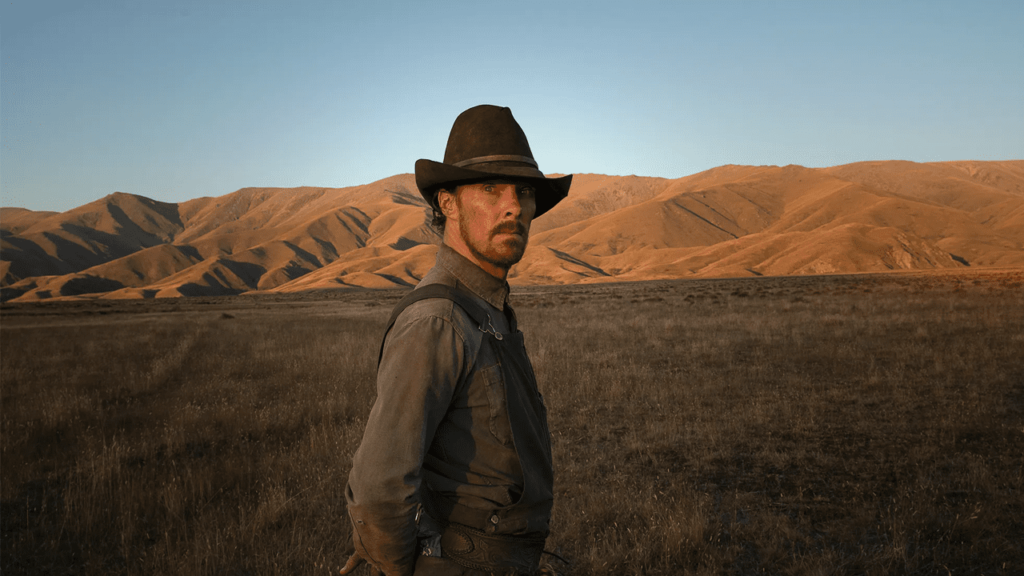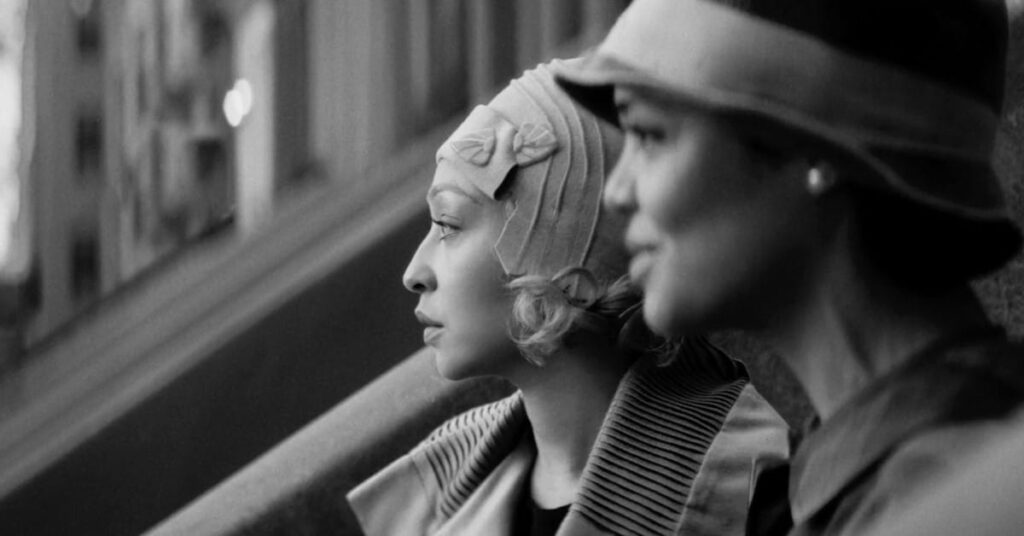
There’s an uncommon number of period films
among the end-of-the-year releases and screeners,
a clear indication that we don’t want to spend more
time than we have to in the present moment. Who
could want to? But the problem with most period
films in this country that are insufficiently inflected
with the usual genre reflexes (the beloved ahistorical
escape hatches of noirs, Westerns, and even musicals)
is that most of us know too little about the past
to make it believable enough to feel inhabitable.
A good case in point is Jane Campion’s sluggish The
Power of the Dog, which tries to critique the Western
genre’s gender stereotypes but winds up stranded in the
present almost by default, in its dialogue as well as its
overall ambience. One simply can’t imagine the
offscreen space of a Montana in the 1920s (e.g., the
nearest town) because the imaginative investments are
too meagre, relating more to the visible landscapes than
to the societies and cultures that the characters
supposedly inhabit.

A far more persuasive view of the U.S. in the 1920s is
found in Rebecca Hall’s densely packed and even
claustrophobic Passing, which is visually and
psychologically far more invested in interiors than in
exteriors, and where the novel being adapted is
contemporaneous with the action being shown. It’s a
complexity that invites us to get lost in its many curves
and hollows, ably assisted by the lead performances.

The James Bond movies have never really been set in
any recognizable present. Their temporal province has
always been a heady mix of colonial nostalgia situated
in a post-colonial future littered with SF gadgets, and
the series’ final chapter, No Time to Die, offers no
exception to their other-worldly out-of-time qualities.
The main achievement here appears to be creating a
politically correct Bond universe without looking
stupid or otherwise abject as the result of doing so.
